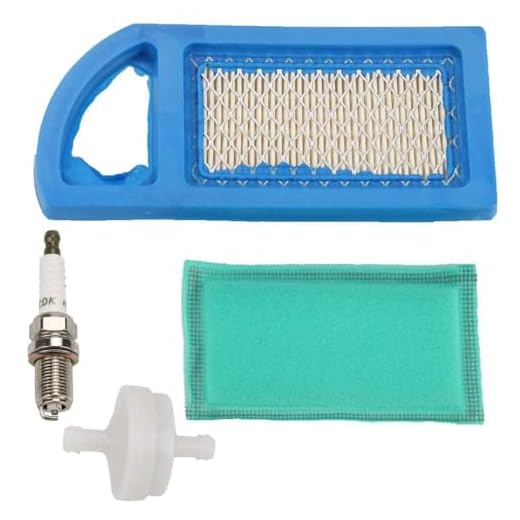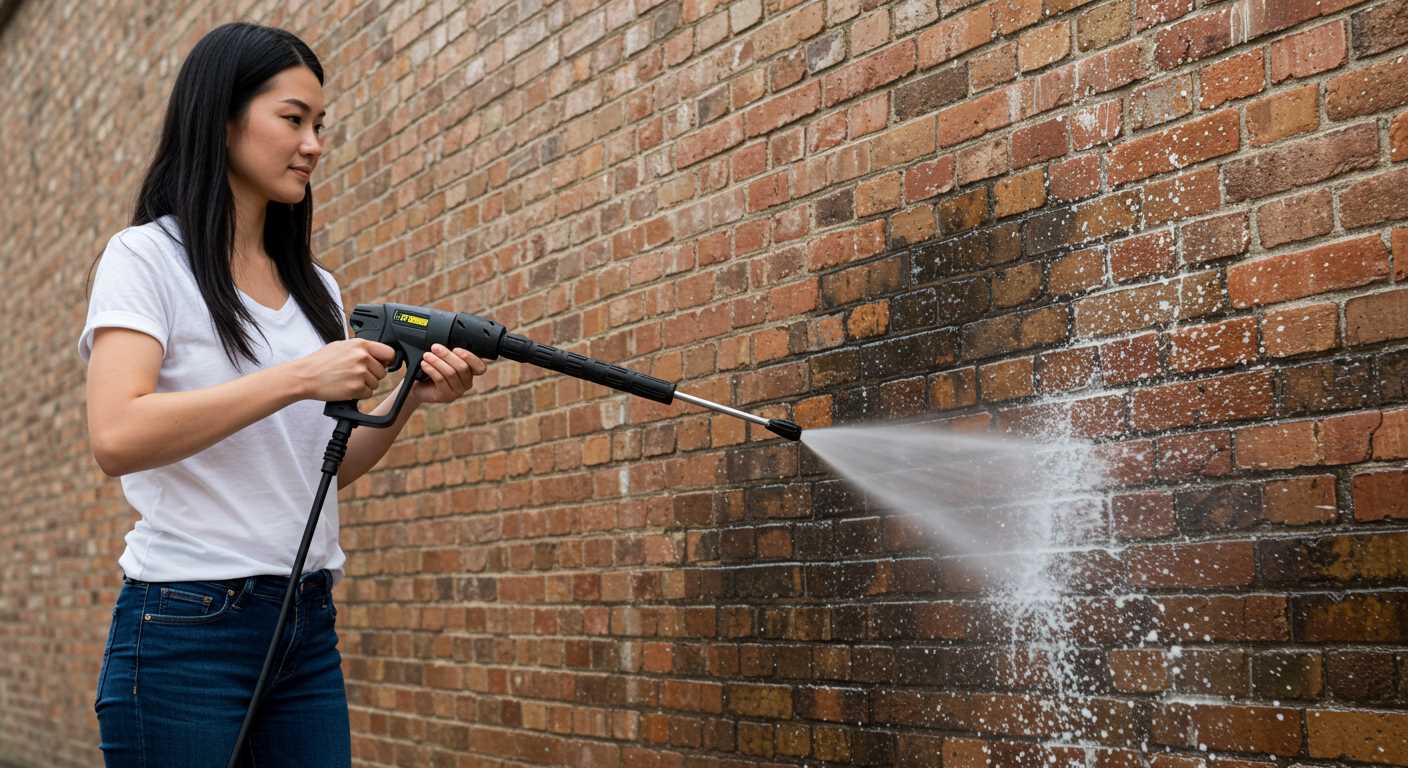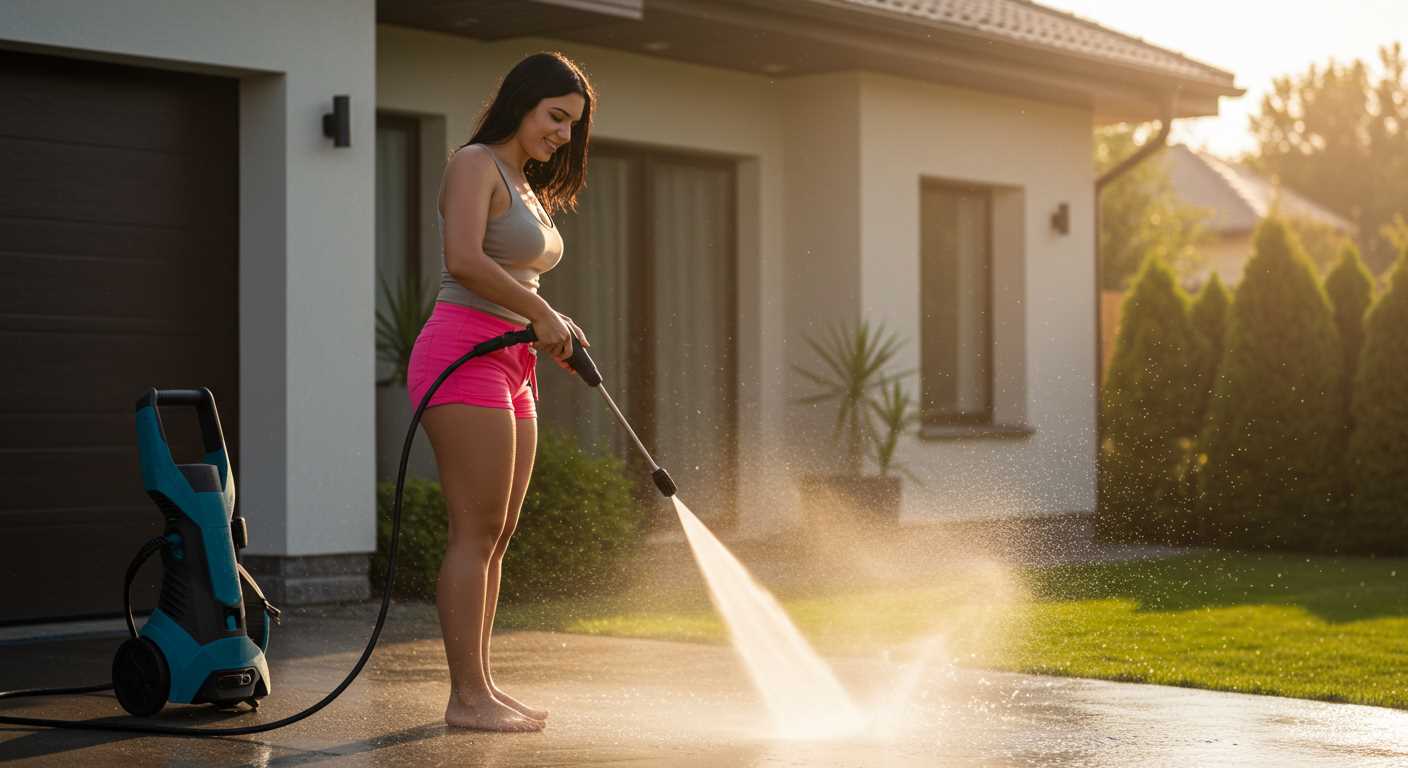

To resolve unscheduled stops of your equipment, the initial step involves checking the fuel levels. Insufficient gasoline can lead to performance issues, causing the unit to momentarily pause as it struggles to draw adequate fuel. Refuelling and ensuring high-quality petrol can often remedy this issue.
A frequent culprit for sudden shut-downs is a clogged air filter. When the filter becomes obstructed with dirt and debris, it restricts airflow, leading to inefficient engine performance. Regular maintenance, including cleaning or replacing the air filter, is essential for smooth operation.
Additionally, inspect the spark plug for signs of wear or fouling. A faulty spark plug can compromise ignition, causing operational inconsistencies. Replacing the spark plug can significantly enhance reliability and performance.
Another aspect to consider is the water supply. Inadequate water flow can trigger a safety mechanism that shuts off the engine to prevent overheating. Verifying that all connections are secure and the inlet filter is clean ensures uninterrupted water flow and optimal functioning of the device.
Lastly, pay attention to the pressure relief valve. Malfunctioning components can also contribute to interruptions during use. Regular inspections and servicing can help maintain performance and prolong the lifespan of the cleaning equipment.
Common fuel-related issues causing interruptions

Examine the fuel quality; contaminated or old fuel can lead to engine misfires and stalling. It’s advisable to drain the tank and refill it with fresh, clean fuel regularly.
Check the fuel filter for blockages, as a clogged filter restricts the flow of fuel to the engine. Replacing the filter is straightforward and can significantly enhance performance.
Inspect the fuel lines for cracks or leaks. Damaged hoses can create air pockets, disrupting fuel flow. Replace any compromised lines immediately to maintain equipment efficiency.
Evaluate the carburettor settings. Incorrect adjustments can alter the fuel-air mixture, causing instability. Cleaning the carburettor and ensuring proper tuning is essential for smooth operation.
| Issue | Symptoms | Solution |
|---|---|---|
| Contaminated fuel | Misfires, stalling | Drain and refill with fresh fuel |
| Clogged fuel filter | Restricted flow, engine struggling | Replace the fuel filter |
| Damaged fuel lines | Air pockets, inconsistent operation | Replace cracked hoses |
| Incorrect carburettor settings | Unstable performance | Clean and properly adjust the carburettor |
Ensuring these components are in optimal condition will lead to improved reliability and performance in your equipment.
Checking the Air Filter for Blockages
.jpg)
Inspect the air filter regularly to ensure optimal airflow. Start by removing the filter as per the manufacturer’s guidelines. Look for any dirt, debris, or damage that could obstruct air intake. A clean filter ensures the engine receives the necessary air for combustion.
Cleaning the Filter
If found dirty, use compressed air to gently blow out any dust. If it appears overly soiled or damaged, replace it. Regular maintenance extends the lifespan of the machine and enhances its performance.
Reinstallation and Testing
.jpg)
Once cleaned or replaced, reattach the air filter ensuring it fits securely. Start the engine to check for smooth operation. If the issue persists, further investigation may be required in other areas of the device.
Assessing the Spark Plug Condition
Check the spark plug thoroughly; it’s a primary component for ignition. Remove the spark plug and inspect it for wear, cracks, or heavy fouling. A clean, well-functioning spark plug should have a light brown colour. If you see black carbon deposits or a wet surface, it’s necessary to replace it.
Cleaning the Spark Plug
If the spark plug appears slightly dirty, cleaning might extend its life. Use a wire brush or a spark plug cleaner to eliminate deposits. Ensure that you recheck the gap between the electrodes, which should match the manufacturer’s specifications. Use a feeler gauge to achieve the correct measurement.
Replacing the Spark Plug
If the spark plug shows signs of significant wear or damage, replace it with an equivalent part. Always follow the manufacturer’s guidelines for the correct type and installation procedure. A new spark plug can significantly enhance the ignition quality and help maintain smooth operation.
Identifying Water Supply Problems
.jpg)
Ensure that the water source is providing sufficient flow. A quick test involves checking the hose for kinks or blockages. If the water cannot flow freely, your machine won’t perform optimally.
Inspect the inlet filter, which can accumulate debris over time. A clogged filter restricts water flow, leading to operational issues. Clean or replace the filter if needed to restore proper water supply.
Examine the hose for leaks. A damaged or worn hose can result in significant pressure drops. Perform a thorough visual inspection, and use waterproof tape as a temporary fix until a replacement is secured.
Confirm the water pressure from your supply tap. Insufficient pressure can disrupt operation. A minimum of 20 psi is generally required for effective performance. If your pressure is low, resolve this before attempting further troubleshooting.
Lastly, check the connection for any air leaks. Ensuring a tight seal where the hose connects to your machine is essential for maintaining the water flow. If air enters the system, it could lead to interruptions in performance.
Evaluating the pump’s functionality

Begin by inspecting the water pump thoroughly. Ensure that there are no visible leaks or cracks that could lead to pressure issues. A malfunctioning pump can cause the machine to lose power intermittently.
Follow these specific steps to assess the pump’s condition:
- Check the inlet and outlet valves for blockages or damage. Ensure they open and close properly, allowing water to flow smoothly.
- Inspect the pump’s seals for wear and tear. Worn seals can result in pressure drops and water leaks.
- Examine the pump for any unusual noises during operation. Grinding sounds may indicate internal damage.
- Test the pressure output using a pressure gauge. Ensure it meets the manufacturer’s specifications. If readings are low, the pump might require repair or replacement.
After completing these checks, clean any debris found within the pump assembly. Often, blockages in the pump can stem from dirt or mineral deposits in the water source. Regular maintenance is key to ensuring optimal performance.
If issues persist after your evaluation, consider consulting a specialist to recommend appropriate actions, whether maintenance or replacement of components is necessary. An efficient pump is vital for seamless operation.
Understanding overheating and its effects
Regularly monitor operating temperatures to prevent damage to your appliance. If overheating occurs, the motor can shut down automatically, disrupting operation. This situation not only causes inconvenience but can lead to long-term issues with internal components.
Keep an eye on the usage duration. Extended sessions without breaks can raise heat levels significantly. I recommend allowing a cooling period after approximately 20-30 minutes of continuous work. Keep an eye on components like the pump, which can overheat quickly if water flow is restricted.
A lack of cooling airflow due to dust and debris build-up can exacerbate temperature issues. Routinely clean any ventilation openings to promote adequate airflow. If the device features an external fan, ensure it is functioning properly.
Pay close attention to fuel quality as well. Poor-quality or contaminated fuel can cause inefficient combustion, increasing heat output. Use fresh, clean fuel to maintain optimal performance and prevent overheating scenarios.
Consider adding additional cooling mechanisms if you frequently encounter temperature-related issues. You might think about installing a cooling fan or heat shield to protect sensitive components.
If overheating persists despite these efforts, consulting a professional technician may save further complications and extend the working life of your equipment.
Recognising maintenance tips to prevent failures

Regularly check the fuel system for leaks and wear. Ensure connections are secure and free from cracks, which can lead to interruptions during operation.
Keep components lubricated according to manufacturer specifications. This includes ensuring the pump and engine are adequately oiled, preventing unnecessary strain and potential failures.
Clean and replace the water inlet filters frequently to avoid debris blockage. A clogged filter hampers water flow, affecting performance and leading to overheating.
Look out for unusual noises while in use. Strange sounds often indicate underlying issues that require immediate attention, like improper alignment or wear of internal parts.
Schedule annual servicing with a qualified technician. A professional inspection can uncover hidden problems that might not be visible during routine checks.
Examine hoses and nozzle tips for wear and tear regularly. Damaged hoses can cause reduced pressure and inefficient operation, making cleaning tasks more challenging.
Maintain the fuel quality by using fresh, clean fuel. Old or contaminated fuel can lead to starting issues and inconsistent performance, which ultimately affects reliability.
Store equipment properly when not in use. Keeping the machinery in a dry, protected area helps prevent corrosion and mechanical degradation caused by environmental factors.
Lastly, always adhere to the manufacturer’s guidelines for operation and maintenance. Following these recommendations helps ensure longevity and reliability throughout the lifespan of your equipment.








